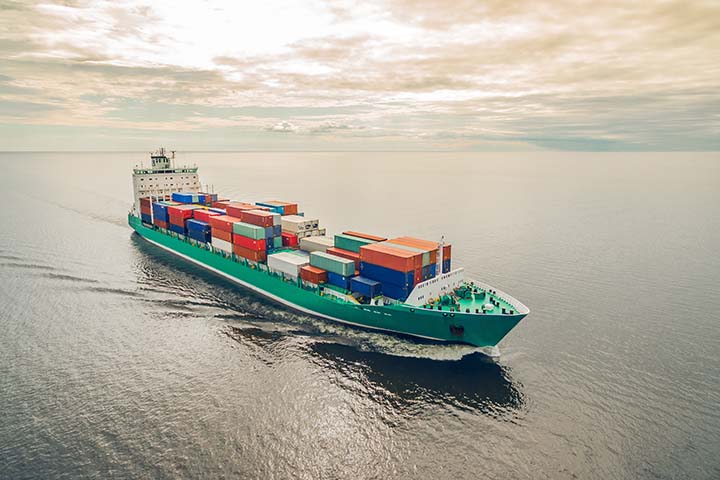The urgent need to address climate change and reduce carbon emissions is pushing industries, including the shipping industry, to reduce their environmental impact.
This blog explores new and exciting developments in the shipping industry's journey towards sustainability.

Alternative Fuels:
Shipping has traditionally used fossil fuels, which add to greenhouse gas emissions. Now, the shipping industry is moving towards cleaner fuels. Liquefied natural gas (LNG) emits fewer pollutants and reduces CO2 emissions by up to 25%. Biofuels from renewable sources offer carbon neutrality and work with existing engines. Maersk's methanol feeder vessel, launching in 2023, is a big step toward using sustainable, low-carbon fuel.
Electric and Hybrid Ships:
Electric and hybrid ships use clean energy. Battery-powered vessels produce zero emissions and can operate in sensitive areas without harming marine life. Hybrid ships use both traditional fuel and electric power, cutting emissions during transit.
Energy Efficiency Measures:
Improving energy efficiency is crucial for sustainable shipping. Better ship design, upgrading ships, and advanced technologies like air lubrication systems and hull coatings reduce fuel use and emissions. Slow steaming and optimizing ship routes also save energy.
Port Infrastructure and Shore Power:
Ports play a big role in the shipping network. Integrating green practices into port infrastructure is essential. Shore power, also known as cold ironing, allows ships to connect to the local power grid while docked, reducing emissions from onboard generators. Building efficient port facilities and using renewable energy sources enhance sustainability.
Digital Transformation and Data Analytics:
Digital technologies can improve the efficiency and sustainability of shipping operations. AI and machine learning enable better route planning, optimized cargo handling, and fuel use monitoring. Real-time tracking and predictive maintenance systems minimize fuel waste.
Collaboration and Industry Standards:
Achieving sustainability in the shipping industry requires working together. Governments, shipping companies, port authorities, and technology providers must work in tandem to drive innovation and implement green initiatives. International regulations, like the International Maritime Organization's (IMO) goal to cut greenhouse gases, encourage eco-friendly practices and global greenhouse gas reduction.
Kite Propulsion:
Kite propulsion uses large kites to capture high-altitude winds, providing additional propulsion and reducing fuel use. This approach can decrease fuel use by up to 20% and significantly reduce carbon dioxide emissions.
Conclusion:
The shipping industry is moving towards sustainability by adopting alternative fuels, electric and hybrid ships, energy efficiency measures, green port infrastructure, digital transformation, collaboration, and innovative technologies. These green initiatives reduce environmental impact and support long-term viability and profitability.
At U-PIC Shipping Insurance, we understand the importance of going green. We are dedicated to reducing our environmental impact while delivering a more efficient and eco-friendly insurance experience. From an entirely paperless claims process to digital reporting, we are excited be a part of the green initiatives in the shipping industry. Protect your shipments and support sustainable practices with our shipping insurance services. Contact us today to learn more about how we can assist you, as we strive to create a greener and more sustainable shipping future!
